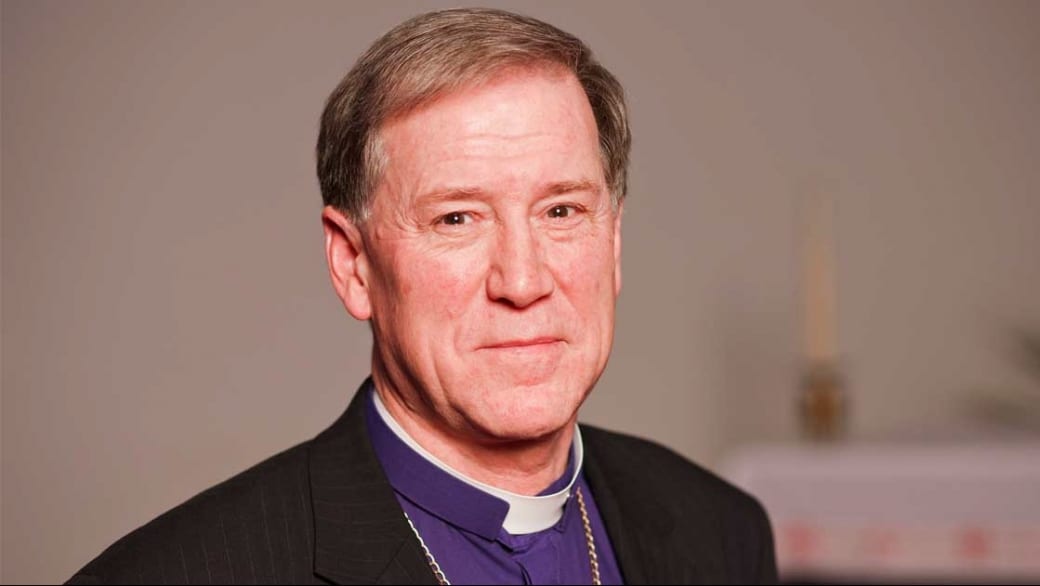Same-sex marriage could be a reality within the Anglican Church of Canada by 2019, despite a recent vote by Anglican archbishops to suspend the church’s US branch for consecrating gay weddings.
Anglican priests in Canada took a significant step towards marrying same-sex couples in 2013, when the church’s highest governing body here (the triennial synod) voted to change canon law to allow for gay marriage.
The resolution still needs approval from two more synods in 2016 and 2019 before it can come into effect.
It also includes an opt-out clause for clergy members, bishops, congregations and dioceses opposed to blessing gay marriage.
“The outcome of the 2016 decision will be discussed in all 30 Canadian dioceses,” says Archbishop Fred Hiltz, the church’s top official in Canada.
“Our church is going to take a lot of care about how we help them have this conversation,” he says. “Even before a synod takes place, we are mindful that regardless of the outcome people will be disappointed. From a pastoral perspective we have to be prepared to care for people.”
Hiltz says many LGBT Anglicans are feeling angry and disillusioned with the Archbishop of Canterbury’s decision to penalize the US Episcopalian Church. The decision was announced Jan 13, 2016, at the worldwide Anglican Primates’ Meeting in England, which was called to try to appease Anglican leaders from countries opposed to gay marriage.
A statement from the primates says the Episcopal Church no longer represents the communion on ecumenical and interfaith bodies, and penalizes its members with non-voting status at Anglican councils and conferences for the next three years.
More than a decade ago, the Diocese of New Westminster, which includes Greater Vancouver, became the first within the Anglican Communion to bless same-sex partnerships in 2002.
“Here we have provisions for pastoral generosity,” Hiltz says, “which means that same-sex couples can obtain blessing of their same-sex marriage, which may include special prayers for life, love and home or kids.”
However, although the Anglican Church of Canada allows openly gay men and women to serve as priests, they are expected to “abstain from sexual acts with persons of the same sex as part of the requirement for ordination.”
In practice, though, several openly gay and married people serve as clergy within the church in Canada.
Hiltz says it’s a dilemma for the church because the policy was never officially rescinded or abandoned.
“There have been calls to review it,” he says, “but not to do anything official because the conversation about blessings and same-sex marriage are about all of the people, and not just the clergy. We don’t take a top-down approach.”
Peter Elliott, a gay and married priest at Christ Church Cathedral in Vancouver, who has served as a Canadian representative at the Anglican Consultative Council, says the grassroots organization of the Anglican Church and Communion means individual dioceses tend to reflect the culture of the communities they serve.
“In urban dioceses such as Halifax, Montreal, Ottawa, Toronto, Winnipeg, Edmonton and New Westminster there is a fairly progressive view toward homosexuality — which doesn’t mean every congregation has that but that’s the general view of diocese,” he says.
“In all those dioceses there are gay and lesbian clergy who are married to their partners and serve under the authority of a bishop and there is generally a wide of berth of acceptance of gay and lesbian people in the church. In other dioceses there is a different view.”
In 1988 the United Church of Canada became the first mainstream Canadian church to expand full church membership, including ordination, to openly gay and lesbian people. In 1992 they began performing covenanting ceremonies for same-sex couples.
When asked why the Anglican Church lags behind the United Church on LGBT inclusion, Hiltz explains it’s because his denomination is just one of 38 independent self-governing provinces that are in communion with one another and the Archbishop of Canterbury.
“The United Church doesn’t have the same relationship with other Protestant churches around the world,” he says. “We choose to be in a relationship with each other but sometimes it’s a strained relationship with other churches who may say, ‘we are unhappy about same-sex marriage’ and threaten to break with us. We always live with that tension.”
But, he says, Anglican churches worldwide still try to maintain a connection with each other, in spite of their differences on same-sex marriage.
“It’s our DNA as Anglicans to say, ‘we have to work at that and find a way to do that in away that it is consistent with the Gospel of Jesus.’ Not walking away but walking together.”
In addition to the US Episcopalians who have already passed gay marriage, and the Canadian church which is considering it, four other branches of the Anglican church, in Brazil, Scotland, South Africa and New Zealand, are considering blessing gay marriage as well.
Archbishop Fred Hiltz invites LGBT Canadians to join him in celebrating a queer eucharist at St John’s Anglican Church in Toronto on Tuesday, Feb 16, 2016, at 7pm. For more information go to sjwt.ca.
Read Hiltz’s Reflection on the Meeting of the Primates of the Anglican Communion in Canterbury, England.

 Why you can trust Xtra
Why you can trust Xtra


